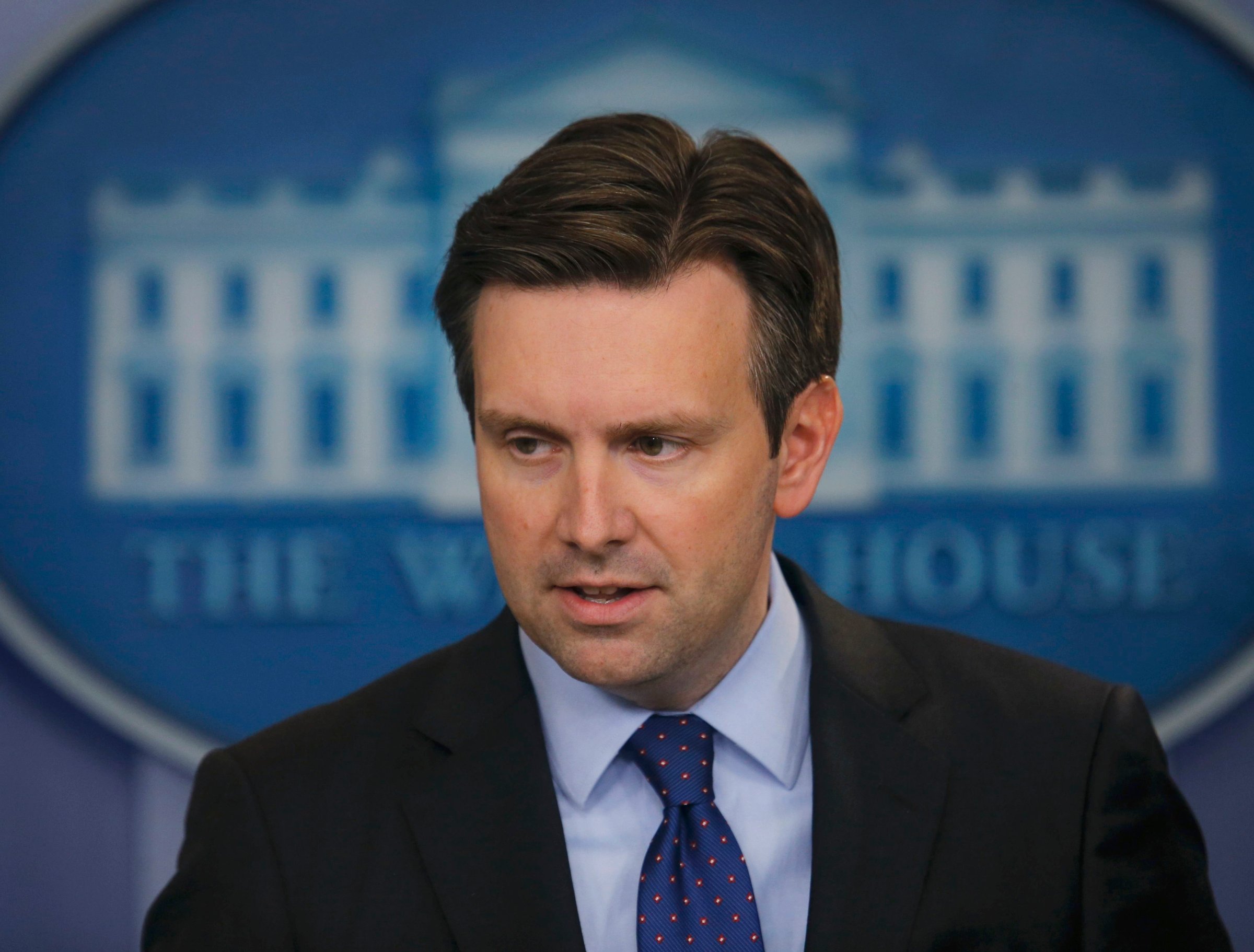
Emma Ashford is a research fellow at the Cato Institute.
The U.S. will send about 50 U.S. special forces troops to Syria, the White House announced Friday. The Pentagon has billed “direct action on the ground” as a remedy to the current stalemate between U.S.-backed ground forces and ISIS. Yet this approach is not likely to solve the underlying problems of the Syrian conflict.
Instead of this consistent mission creep—committing ever more U.S. troops and equipment to the conflict—U.S. leaders should focus less on military solutions. They should accept the de facto containment of ISIS, and instead prioritize non-military approaches, humanitarian support for the refugee crisis and aggressive pursuit of diplomatic options.
Defense Secretary Ashton Carton outlined the Pentagon strategy on Tuesday in his testimony before the Senate Armed Services Committee. He described weapons shipments and air support for Syrian rebel groups, additional support and advisors for Iraqi army units, and raids by U.S. special operations forces.
This is not a new strategy. U.S. Special Forces have previously engaged in raids in both Syria and Iraq. This includes last week’s prison raid in Iraq that rescued 70 hostages but also resulted in the first combat death of a U.S. soldier in the fight against ISIS. The U.S. has also previously provided arms and training to Syrian rebels. The main difference with the new plan will likely be that rebel groups will no longer be vetted as thoroughly, and that the U.S. troop presence will be long-term.
To date, the fight against ISIS has been unsuccessful largely because it has failed to address the conflict’s underlying causes: a bloody ongoing civil war between rebel forces and the Bashar al-Assad regime in Syria, the involvement of various regional proxies in funding and arming militias, and the Iraqi army’s inability—despite a decade of U.S. training and funding—to provide a feasible on-the-ground counterpart to U.S. airstrikes.
As a result, new proposals to place more U.S. forces on the ground in Iraq and Syria will probably do little to turn the tide against ISIS, while placing American troops in harm’s way.
Though the campaign has been unsuccessful in rolling back ISIS, it has been more successful at containing it. Airstrikes have been effective in halting ISIS’s momentum in Iraq and Syria, preventing them from seizing new territory. This de facto containment can be augmented by non-military means, in particular, pushing coalition allies like Turkey, Saudi Arabia or Qatar to target ISIS funding sources—including foreign financing and the smuggling of oil and antiquities—and the ongoing flow of foreign fighters.
Containment keeps ISIS small, weak and insignificant. While further large-scale military intervention has the potential to increase the turmoil in the region, providing ISIS with openings to expand, containment lowers the potential for regional spillover of the Syrian and Iraqi conflicts.
The U.S. should also do more to ameliorate the burgeoning refugee crisis in the region, the brunt of which is being borne not by Europe, but by Syria’s neighbors, including states like Jordan, where the population has grown by an astounding 10% due to the refugee influx.
The U.S. can provide additional funds and humanitarian aid for those stuck in regional refugee camps. Policymakers can raise the caps on the number of Syrian refugees permitted to enter the U.S., and could even seek to create a swifter and more effective application process through the UNHCR, reducing the numbers of refugees who attempt the dangerous smuggling routes into Europe.
And the U.S. needs to actively pursue a diplomatic solution to the Syrian civil war. This week’s decision to hold new talks with all key parties—including Russia and Iran—is a good first step. Peace talks are unlikely to provide any party with their preferred solution, but compromise is essential if a deal is to be reached. A diplomatic solution in Syria will both mitigate the refugee crisis and rob ISIS of its greatest recruiting tool.
Military options have formed the heart of U.S. strategy towards ISIS, and the new strategy will only increase that commitment. Unfortunately, the military-based solutions that have failed in prior iterations are unlikely to succeed in the future. In a conflict as complex as Syria’s, policymakers must resist the temptation to rely only on military means.
More Must-Reads from TIME
- Cybersecurity Experts Are Sounding the Alarm on DOGE
- Meet the 2025 Women of the Year
- The Harsh Truth About Disability Inclusion
- Why Do More Young Adults Have Cancer?
- Colman Domingo Leads With Radical Love
- How to Get Better at Doing Things Alone
- Michelle Zauner Stares Down the Darkness
Contact us at letters@time.com